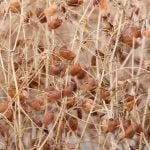Glacier FarmMedia | MarketsFarm – The following is a glance at the news moving markets in Canada and globally.
– The Western Canadian Wheat Growers Association sent a letter to Senators and other policy makers in Ottawa on Tuesday urging them to consider the long-term effects of Bill C-202. The bill’s intent is to protect supply-managed sectors in trade negotiations with other countries. However, the organization believes it would protect the dairy sector at the expense of others and weaken Canada’s standing as an agricultural trade partner. The association cited Canada’s retaliatory tariffs on electric vehicles as another example of “short-sighted protectionist thinking”.
Read Also
Global Markets: Canadian unemployment rate at 6.9 per cent
Glacier FarmMedia — The following is a glance at the news moving markets in Canada and globally. Now at 6.9…
– Environment and Climate Change Canada said most of the country should expect a warmer-than-normal summer according to its seasonal forecasts. Ontario and eastern Canada are most likely to see temperatures rise in the coming weeks. Humidity is also supposed to be higher than normal, but severe fire risk will persist in western Canada in August. Parts of the West Coast and the Northwest Territories will be cooler than normal.
– Ukrainian Bean and Soybean Association President Antonina Sklyarenko told attendees at the Agro Ukraine Summit on Tuesday that China has recognized Ukrainian peas as being on par with Canadian ones and better than the Russian crop. China’s assessment proves that Ukraine can be a long-term pea supplier, she added. Sklyarenko also said pulse producers in Ukraine are looking for profitable markets including the European Union, Africa and Asia.
– United States President Donald Trump announced on Wednesday that his country will receive rare earth minerals from China in a new trade deal brokered in London. In exchange, the U.S. will raise tariffs on Chinese goods to 55 per cent, as well as allowing Chinese students to attend U.S. colleges and universities. China will still impose 10 per cent levies on U.S. products. Much of China’s rare minerals come from the Xinjiang region in the western part of the country, where rights groups have accused the Chinese government of using forced labour from Uyghur Muslims and other minorities.









